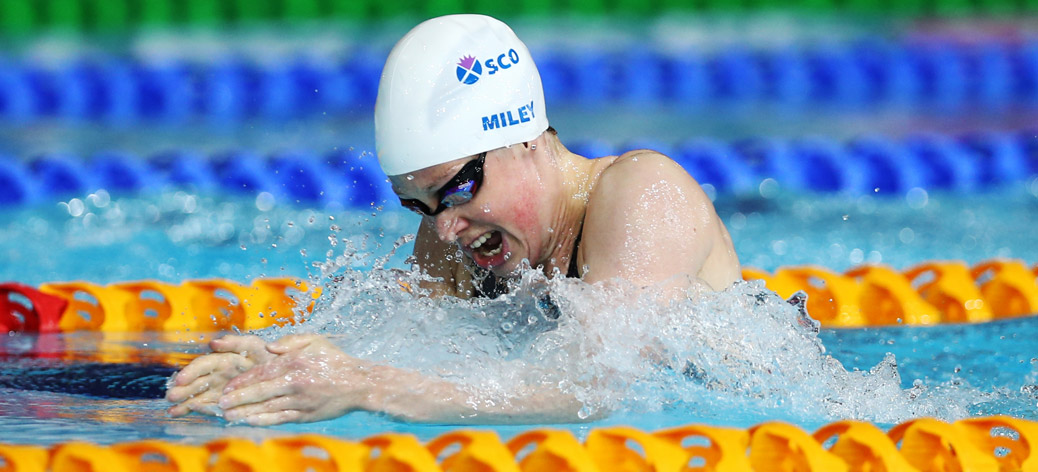It’s not difficult to argue that Britain’s swimmers, under their respective home nation colours, performed admirably in Glasgow; 39 medals, 14 gold says as much, while around 60% of swimmers set their season best at the meet. But while some events were of an extremely high standard, others weren’t and the depth in the Commonwealth can never hope to match that at a global championship.
“We did incredibly well and this has delivered one of our best Commonwealth Games results ever,” remarked Britain head coach Bill Furniss “but we have to be realistic and recognise that it is not a World Championships or an Olympic Games.
“Our collective challenge now is to produce this kind of performance in a more difficult environment under increased pressure. When we can do that I will know that we’ve made a significant step forward.”
That test will come next year in the Russian city of Kazan, host of the 2015 World Championships, but right now we can make some assessment of the quality of the British performance in Glasgow by comparing it to results at last year’s world championships in Barcelona.
The comparison is hypothetical, but favourable; comparing times swum by British medallists in Glasgow would have won 14 medals in Barcelona, 11 in Olympic events, and 4 gold overall, led by two paper gold medals for Francesca Halsall in the 50m freestyle and ‘fly. Ben Proud’s 50m fly victory and the men’s 4×100 success being the others, albeit that the medley relay result was skewed by the disqualification of the US quartet last year.
One of the most striking outcomes was in the men’s 400m freestyle; James Guy won Commonwealth Bronze, but his time would have won silver last year. That was one event where the field was truly world class. Indeed 8th from the heats into the final in Glasgow was faster than the equivalent world championship spot last year.
There was also encouragement from the relay performances, which would have garnered 2 medals without considering the potential beneficial effects of composite British teams.
But to win a medal you need to be in the race. Getting that second and third swim has been an Achilles heel for British swimming, but there were signs of a corner being turned in Glasgow. Indeed we remarked upon the fast heats a number of times on the Commonwealth Games podcast. But to put a modicum of rigour behind it, the results of those slated to win hypothetical world championship medals through the Galsgow rounds were compared with the equivalent results in Barcelona.
Relays weren’t considered because the very shallow fields in Glasgow made the heats a formality for the main nations and of course there were no semi-finals in the 200m events at the Commonwealth Games which makes the comparison tougher in those events, but results were encouraging.
Of 12 notional individual medallists, 11 put in performances in heats and semi-finals (where held) that would have progressed through the equivalent stages at last year’s world championships and all but one of those swam faster through the rounds.
There is of course the fact that the pressure in a Commonwealth heat is lower than a world championship; the knowledge that it wouldn’t necessarily take your personal best to progress is always going to be a factor, but this still represents a step forward. Fast times in the morning are an essential component of championship swimming and finally there are signs that the message is getting through in Britain.
We must rememeber that paper exercises like this can never predict what will actually happen in the pool, but in this case it at least demonstrates significant reason to be optimistic at this midway point of the Olympic cycle.
Banner image courtesy Scottish Swimming/Ian MacNicol

